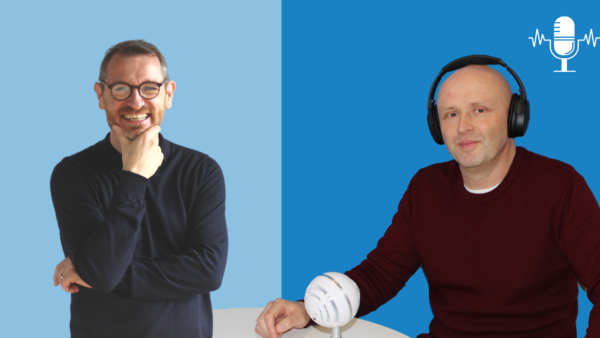Heard of the employee experience? Used to be called the talent lifecycle probably, I don’t think it’s actually a different thing, but I like the change personally, because for me it’s more a reflection of reality today – that employers are starting to wake up to the fact that it’s them who need to start flexing to the needs and expectations of their employees rather than the other way around. Personally, I’m not sure this is because of changes in the job market, per se, whether it’s more of a job seeker’s or an employer’s market…as it goes, I think that idea’s outdated too. Instead, I think the change of language to employee experience indicates a fundamental shift in the way that we are viewing employment and workplaces, very much influenced by the emergence of new technologies and changes in the expectations of new generations of workers. And in my view, these changes are accelerating, won’t be reversed and any employer that doesn’t shift its thinking will fail to attract and keep good people, ultimately leading to untimely death.
My name’s Dr Paul Brewerton, the strengths guy, I podcast each week on life and work through a strength lens, publishing on a Monday morning, so you can grab some inspiration on your way into work. If you like this podcast, please share and like and spread the word.
So what is the employee experience? Well it all depends who you ask. To my mind, it’s everything that happens to an employee as soon as they touch an organisation for the first time, which is usually during the recruitment process. It’s moments of truth, when you realise exactly what it is you’re stepping into, like:
- Seeing a job ad or job description and applying for a role
- First visit to the office, first day in the job and the first week of onboarding including colleague meetings, line manager meetings, etc.
- The purpose of the organisation and how connected you feel to that purpose
- How your first real piece of work is managed and how supported you feel as an employee
- How learning and development works, as well as the performance management system
- What the workspace is like, what perks are available, how valued employees are made to feel
- The extent to which people have the tools and technology they need to do their jobs
- How people communicate, behave, form relationships; how performance is actually managed, whether people are honest, open, give feedback – basically, the culture of the place
- What about role changes? Any changes? How are these communicated and managed?
- And how do people exit – respectfully and with understanding on both sides, or not?
The business case is strong. Jacob Morgan undertook a piece of work which identified truly ‘experiential’ organisations – these were the employers where 1. the tech was employee-centric, 2. working conditions, rewards and the workplace were employee-centric and 3. the culture was one that valued the employee and that created meaning and purpose for each employee in the way that they each individually contributed. He found that only 6% of the organisations he analysed could be classified as experiential, but when compared to nonexperiential organisations, they had 4x higher average profits, 2x higher average revenues, 40% lower turnover and 24% lower headcounts (so greater people efficiency). Their stock prices also outperformed the S&P 500 and the Nasdaq.
Let’s reflect on why this might be, particularly in today’s world. Simply put, we are experiencing an ever-more individuated world around us. Was that more simply put? Ok, what I mean is, we are served up stuff on the screens that make up our world (phones, tablets, TVs, laptops, whatever) via apps that are responsive to us as individual humans because of AI of varying sophistication. That means that we now EXPECT our environment to know more about us, and to flex more to meet our needs, without us really having to do much work in order to get that outcome. Oh you bought this, try that. You did this, have you thought of doing that? I see you’re planning this, have you considered that you need that, etc, etc.?
Now this is happening for everyone, but for Generation Z and those who come after, this is literally ALL THEY’VE EVER KNOWN. And so, when they come into the workforce, guess what? That’s right, their expectation will be that they new employer will have a really good understanding of their needs, preferences, ways of working and will flex work towards those characteristics. Oh hold on, not all employers do that? Some still work in pretty set and inflexible ways? Well why should Generation Z be working for you then, when someone else is going to understand them better, provide the tools and technologies that they need to do their best work when and where they want to, and provide them with an experience of work that makes them feel valued, connected, useful and purposeful. For those employers, please expect to find the coming years increasingly challenging. For the generations that pre-date Gen Z, it is also true that the world has shifted in the last few years, with expectations set up that work should be fun, engaging, individuated. So all in all, the world is a very different place and getting differenter all the time.
I mentioned that my podcasts tend to look through a strengths lens – well there’s no greater relevance for strengths than in the context of the employee experience. Imagine walking into an employer who by day 1 already knows the things that energise, motivate and drive you, that define you at your best. That employer has teed up your first line manager and team meetings to weave that strengths conversation in so that you’ll feel understood and appreciated right from the off, and so that you can start doing your best work as early as possible, overcoming any early doors nerves about whether you’ll be able to make a positive difference.
Imagine an employer where your colleagues approach you in your first few days to ask for help in areas which you absolutely LOVE working in, where you feel strong and assured and energised. Where you are able to have open conversations in your team about what you value in others but also areas where you may clash and to be able to work out why and do something about it.
Imagine an employer where your first performance management meeting with your manager focused on what you have enjoyed the most, when you have been at your best and also when you haven’t felt so energised or motivated, with both of you taking learning and actions away from that conversation. Imagine an employer where your personal development plan encourages you to skill up in areas that already energise you rather than focusing exclusively on developing areas that pain and drain you. Where you have regular career conversations during which you openly discuss with your manager your aspirations to use your strongest areas of talent even more, to carve out a you-shaped niche for yourself in the organisation and to feel confident in the career direction you’re taking.
While it might sound it, this isn’t some kind of unrealistic utopian vision, it’s what companies like mine, Strengthscope, are helping to enable, by introducing the strengths approach into various parts of our clients’ employee experience. Whether it’s in induction or performance management, or team development, or management and leadership upskilling. And it starts with you, your colleagues and your line manager getting a really clear view of the strengths you can bring to your role, to your team and to your employer, as well as gaining visibility of any risks that might get in the way of you being your best. And those conversations then continue right through your journey with your employer, being used as a touchstone each day to remind you of how you can be at your very best, as well as remembering your watchouts so they don’t become your downfall.
In summary, individuate your employee experience through strengths and you are a good chunk of the way towards creating a sustainable organisation. Add to that a clear red thread between each individual’s activity and the purpose of the organisation, and a workplace and workspace which provide them what they need to be at their best every day and you will be moving towards creating an ‘experiential’ organisation by Jacob Morgan’s definition. Don’t, and who knows how long you might have left before the grim reaper strikes.
That’s it for this week, please subscribe on your favourite platform with the button below. Until next time, have a great week.
Subscribe











